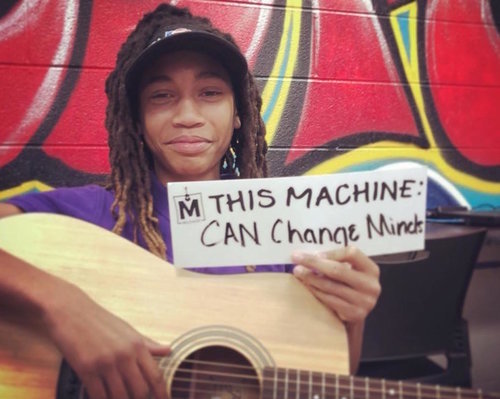Relix 44: Musack and Music Education Nonprofits

Welcome to the Relix 44. To commemorate the past 44 years of our existence, we’ve created a list of people, places and things that inspire us today, appearing in our September 2018 issue and rolling out on Relix.com throughout this fall. See all the articles posted so far here.
You Know, For Kids: Musack and Music Education Nonprofits
Donick Cary, a television writer and producer who got his start on Late Show with David Letterman and has worked on hit programs like The Simpsons, Parks and Recreation and Silicon Valley, grew up on Nantucket Island where, in 2008, a rash of teen suicides led Cary and his friends to reach out to their home community.
“It started, as with many good things—at a birthday party,” Cary explains. Around that same time, Cary—who now lives in Los Angeles—was back on Nantucket for a party that featured the reunion of an old ska-punk band from his high school.
“We had all been hit with it when we were growing up,” Cary says of the risk of teen suicide on the island. “We started talking about this phenomenon of growing up on an island, going through your teen years and feeling powerless—and how we got though those years. We kept going back to music. That’s what would get you through the winter each year and make you feel not so trapped and isolated.”
Inspired, Cary took a trip to his old high school, where he spoke with a music teacher about how to help the students. “He said, ‘I have 10 kids that want to play guitar, and I have no guitars,’” Cary remembers. “It was one of those lightning-bolt moments— once in a while, you get shown the light. Six months later, he called me and said, ‘I have 10 more kids; does your charity have 10 more guitars?’ Then I was like, ‘I better get a charity together.’”
Those humble beginnings eventually grew into Cary’s worldwide nonprofit organization Musack, which works with schools and communities around the world to support music education, especially through the purchasing of instruments for teachers and students that would otherwise not have the funds to do so. Along with its work on Nantucket, Musack has expanded to Appalachia, Haiti, Cuba, Alaska, Native American reservations in the Southwest and even Aboriginal communities in Australia.
“We just keep our ears open,” Cary says. “Wherever there’s need and somebody who digs rock-and- roll the way we do and is teaching and supporting kids to be able to share their voices with music, we come in and say, ‘How can we support that?’ It’s so gratifying when you get that first video back from a kid who’s just learned, like, ‘Combat Rock.’ Then you go, ‘Well, what if 100 kids were doing that? Why not 1,000?’”
Musack is just one of the many programs across the country that are working to strengthen communities through musical education, including Tipitina’s Foundation’s Instruments a Comin’, fellow New Orleans organization Roots of Music, The Mr. Holland’s Opus Foundation, Hungry For Music, Vega Productions and more, along with the various music education grants given out by the Phish-inspired Mockingbird Foundation.
This year, Cary hosted the eighth iteration of his annual one-day music and comedy festival—which he puts on in his LA backyard—in continued efforts to raise money for Musack and the nonprofit’s expanding endeavors. Yet, even as the organization grows, Cary and company are sticking to their main objective of empowering students through music, drawing on the famous words that Woody Guthrie’s once displayed on his guitar—“This Machine Kills Fascists”—but with a personal spin.
“Whenever we give anyone a set of drums or a guitar or keyboard, we give them a sticker that says, ‘This Machine:’ and they can write in whatever they need that machine to do for them,” Cary says. “Some of the kids in Alaska wrote, ‘This Machine Melts Ice,’ and other kids have written, ‘This Machine Makes This Girl Like Me’ or ‘This Machine Kicks Ass.’ That’s our goal. We want to give them a voice and a musical machine to fix something.”
This article originally appears in the September 2018 issue of Relix. For more features, interviews, album reviews and more, subscribe here.



















